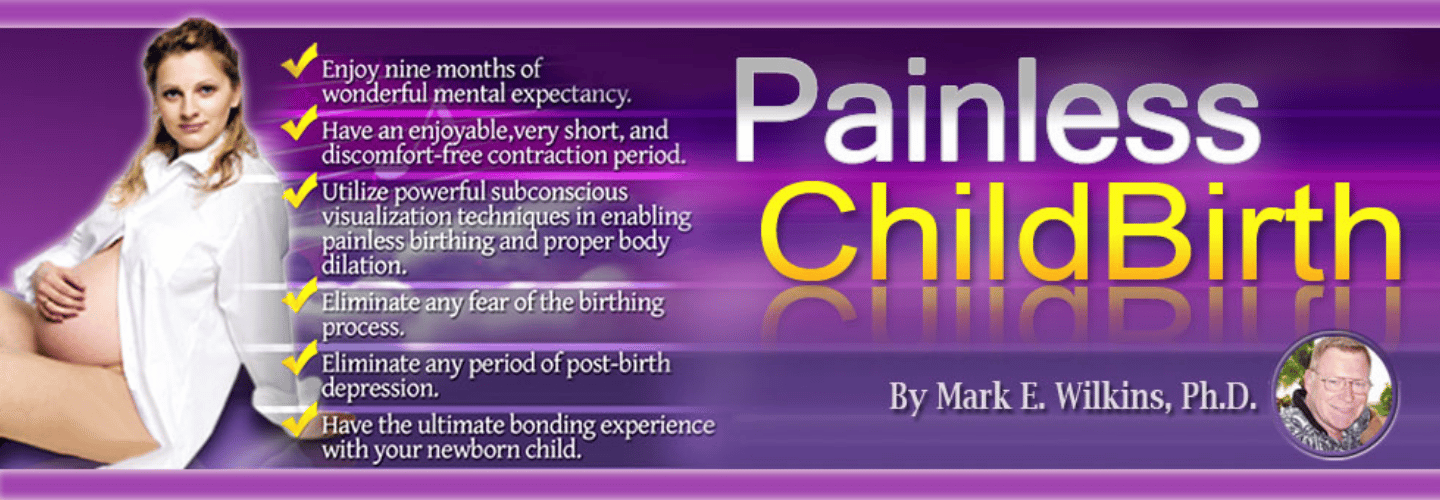
Exploring the domain of hypnosis for pain-free childbirth opens up a fascinating dialogue on alternative approaches to managing labor discomfort. The concept of utilizing hypnosis to alleviate pain during childbirth challenges conventional perceptions of pain management and empowers expectant mothers to embrace a more holistic birthing experience. As we investigate the multifaceted benefits that hypnosis offers for natural pain relief in labor, it becomes evident that this technique holds immense potential in revolutionizing traditional childbirth practices.
Hypnosis as a Pain Management Tool
Hypnosis, a powerful tool for pain management, has emerged as a compelling alternative in aiding women during childbirth by reducing the reliance on traditional pain medications. This method offers a unique approach to pain relief during childbirth, tapping into the neurophysiological mechanisms of the mind-body connection. By utilizing hypnosis during pregnancy and labor, women can experience reduced labor pain and potentially lower the need for pharmacological interventions. The effects of hypnosis on pain management have been a subject of interest, with studies demonstrating its ability to lower pain severity and decrease the requirement for epidurals and opioids.
Women who undergo hypnosis preparation before labor have shown to have fewer birth complications in certain instances, highlighting the potential benefits of incorporating this technique into prenatal care. The neurophysiological mechanisms underlying hypnosis involve suppressing neural activity in pain-related brain regions, offering a natural and holistic approach to pain modulation during childbirth. As more research sheds light on the efficacy of hypnosis for pain relief, its role in enhancing the birthing experience continues to gain recognition.
Reduced Analgesia Requirements
In the domain of childbirth, the potential for reduced analgesia requirements through innovative approaches has garnered significant attention and interest.
Hypnosis during pregnancy and childbirth has emerged as a promising method to minimize the need for analgesia during labor. Studies have indicated that utilizing hypnosis techniques can lead to fewer parturients requiring traditional pain medication, such as opioids. This reduction in analgesia use not only signifies a shift towards more natural pain relief methods but also highlights the efficacy of hypnosis in managing labor discomfort.
Meta-analyses further support the notion that hypnosis may offer a beneficial alternative for pain relief during childbirth, showcasing decreased maternal fear and increased self-efficacy in managing the birthing process. By incorporating hypnosis into prenatal care, expecting mothers may experience a decrease in the necessity for pharmacological pain interventions, ultimately promoting a more empowered and potentially less medicated childbirth experience.
Lower Severity of Pain

Research on hypnosis for childbirth points to intriguing aspects of how pain can be modulated through specific techniques, leading to enhanced pain tolerance among expectant mothers.
By incorporating tailored pain management strategies, hypnosis offers a unique approach to minimizing the severity of pain experienced during labor.
These findings challenge conventional views on pain perception and open up discussions on alternative methods for achieving a more comfortable childbirth experience.
Pain Modulation Techniques
By employing advanced pain modulation techniques, individuals undergoing childbirth can experience a significant reduction in the severity of pain. Women using hypnosis during labor have reported lower levels of pain, often requiring fewer analgesic medications. Neuroimaging studies have shown that hypnosis can suppress neural activity in pain-related brain regions, altering pain perception. Through focused attention and decreased awareness of external stimuli, hypnosis aids in pain relief by modifying how the brain processes and responds to pain signals. This technique offers a unique approach to managing labor pain by addressing both the physical sensations and psychological aspects of childbirth. Overall, hypnosis proves to be a promising method for women seeking a more comfortable and empowering birthing experience.
- Imagine a serene environment where pain fades into the background.
- Feel the relief of a calm mind easing the intensity of childbirth discomfort.
- Embrace the power within you to transform the way pain is perceived and experienced.
Enhanced Pain Tolerance
Exploring the domain of enhanced pain tolerance through hypnosis during childbirth reveals a transformative approach to managing labor discomfort with remarkable efficacy.
Studies have consistently shown that hypnosis can lower the severity of labor pain experienced by women, enhancing their pain tolerance levels.
By incorporating hypnosis techniques during childbirth, women report a notable reduction in their perception of pain severity, allowing them to manage and cope with the pain more comfortably.
This improved pain tolerance contributes greatly to creating a more pain-free childbirth experience.
Hypnosis not only helps in alleviating the intensity of labor pain but also enhances the overall comfort during childbirth, making it a valuable tool for women seeking a more positive and less painful birthing experience.
Pain Management Strategies
Utilizing hypnosis as a pain management strategy during childbirth has demonstrated significant success in reducing the severity of pain experienced by women in labor. This approach, often associated with methods like the Mongan Method, offers a unique way to deal with labor pain without the need for traditional analgesia or opioid medications.
By decreasing the pain severity, hypnosis not only enhances the birthing experience but also provides a natural alternative to pharmaceutical interventions. The ability of hypnosis to alleviate discomfort during labor showcases its potential to revolutionize pain management strategies in childbirth.
This promising technique opens up a world of possibilities for women seeking a more holistic and empowering birthing process.
Decreased Opioid Usage

Research has consistently shown that incorporating hypnosis techniques during childbirth results in a significant decrease in opioid usage among women in labor. Controlled trials and research studies have indicated that hypnosis for childbirth is associated with reduced requirements for analgesic medications, including opioids.
This alternative approach to pain management during labor and delivery has demonstrated a decrease in opioid use, offering women a potential way to minimize their reliance on these medications. By utilizing hypnosis interventions, women may experience a reduction in the need for opioids, providing a safer and potentially more effective method of pain management.
The findings suggest that hypnosis could play a valuable role in decreasing opioid consumption during childbirth, highlighting the potential benefits of integrating this technique into standard maternity care practices. This shift towards non-pharmacological pain relief methods underscores the importance of exploring holistic approaches to enhance the childbirth experience.
Enhanced Pain Management in Labor
Enhanced pain management techniques in labor, such as hypnosis, offer a promising avenue for reducing the reliance on analgesia and opioid medications during childbirth. Studies have shown that hypnosis can effectively reduce the need for pharmacological interventions to manage labor pain.
Here are three compelling reasons why hypnosis for pain management in labor is gaining traction:
- Empowerment: Hypnosis empowers women to take control of their childbirth experience by providing them with tools to manage pain naturally, without the potential risks and side effects associated with analgesia and opioids.
- Reduced Interventions: By incorporating hypnosis into labor, women may experience a decrease in the need for other pain relief interventions, leading to a more holistic and potentially less medically invasive birthing process.
- Improved Birth Experience: Hypnosis has the potential to enhance the overall birth experience by promoting relaxation, reducing anxiety, and enabling women to navigate the challenges of labor with greater ease and comfort.
Promising Benefits of Hypnosis

Hypnosis during childbirth holds the promise of providing effective pain relief through various pain management techniques, promoting relaxation and comfort for women in labor. By potentially reducing the need for analgesia and pain relief medications, hypnosis offers a natural and empowering approach to managing the intensity of labor pains.
The emerging evidence supporting hypnosis as a tool to lower opioid requirements during childbirth suggests a valuable alternative for women seeking a more holistic birthing experience.
Pain Management Techniques
Amidst the array of pain management techniques available for childbirth, hypnosis emerges as a promising avenue for enhancing comfort and reducing the reliance on traditional analgesia methods. Here are three compelling reasons why hypnosis stands out in managing labor pain:
- Reduced Opioid Use: Hypnosis during childbirth has been linked to decreased opioid use, offering a safer and less invasive option for pain relief.
- Enhanced Comfort: Studies have shown that hypnosis in labor can lead to improved comfort levels, allowing women to navigate the birthing process with greater ease.
- Natural Birth Facilitation: By reducing the need for analgesia, hypnosis promotes a more natural and potentially less medicalized approach to childbirth, empowering women in their birthing experience.
Relaxation and Comfort
With its ability to induce deep relaxation and alleviate discomfort, hypnosis for childbirth offers a promising pathway to enhance the birthing experience for expectant mothers. Controlled trials have shown that hypnosis techniques can greatly reduce pain perception, increase maternal comfort, and aid in anxiety reduction during labor.
By incorporating relaxation techniques such as visualization and imagery, mothers are able to create a serene birthing environment, easing the overall process. This approach not only helps in pain management but also empowers women to take active participation in their childbirth journey.
Through hypnosis for childbirth, mothers can experience a more comfortable and potentially pain-free delivery, highlighting the profound impact of relaxation and comfort on the birthing experience.
Validating Hypnosis in Clinical Practice
In the field of clinical practice, the validation of hypnosis as a viable method for pain management during childbirth remains a topic of increasing interest and scrutiny. Clinical trials have shown promising results, with meta-analyses revealing that hypnosis during childbirth led to fewer women needing analgesia. Additionally, non-randomized controlled trials suggest a decrease in opioid requirements and less severe pain levels for women using hypnosis for pain relief during labor.
Despite these positive outcomes, there is still a need for further well-designed randomized controlled trials to confirm the effects and establish the efficacy of hypnosis in managing labor pain. One poorly designed trial among the existing studies highlights the importance of rigorous research in this area to validate the effectiveness of hypnosis as a tool for pain-free childbirth. As the debate on the effectiveness of hypnosis in labor pain management continues, it is essential to conduct high-quality research to provide clarity and support maternal satisfaction during childbirth.
Research on Hypnosis for Childbirth

Research on hypnosis for childbirth reveals compelling evidence of its potential effectiveness in reducing the need for analgesia during labor, offering promising benefits for pain management in expectant mothers. Nine controlled trials involving 2954 women compared hypnosis interventions to control groups, showing a trend towards reduced overall analgesia use. These studies indicated a decrease in the number of women requiring pain relief medication, although the impact on epidural use was not significant.
While systematic reviews highlighted the positive effects of hypnosis for pain relief during labor, further well-designed trials are necessary to confirm these findings. Meta-analyses of randomized and non-randomized controlled trials suggested that hypnosis could be a valuable tool for providing effective pain relief in childbirth. The evidence from these studies underscores the potential of hypnosis in improving maternal outcomes and enhancing the birthing experience by minimizing the reliance on traditional pain management interventions.
Potential of Hypnosis in Labor
Amidst the growing body of evidence showcasing the benefits of hypnosis for pain management in childbirth, the potential of utilizing hypnosis techniques during labor emerges as a promising avenue for enhancing the birthing experience. Studies indicate that hypnosis during labor may reduce overall analgesia use and opioid requirements, highlighting its efficacy in pain management.
- Reduced Pain Severity: Hypnosis has been shown to lower the intensity of labor pain, offering a non-pharmacological alternative for pain relief that can notably impact the birthing process.
- Enhanced Relaxation: By promoting relaxation, hypnosis can help mothers cope better with the challenges of labor, fostering a calmer and more controlled environment for childbirth.
- Improved Coping Mechanisms: Hypnosis equips women with valuable tools to manage labor pain effectively, potentially reducing the need for traditional analgesic medications and empowering women to navigate the birthing experience with greater confidence.
Improving Pain Relief With Hypnosis

With a growing body of research supporting its effectiveness, hypnosis emerges as a promising tool for enhancing pain relief during childbirth. Controlled trials have demonstrated that hypnosis for childbirth can notably improve pain management by reducing the need for analgesia and opioids, leading to milder pain experiences for women. Additionally, women who undergo hypnosis preparation for childbirth have shown lower rates of birth complications, emphasizing the potential benefits of hypnosis in pain relief during labor.
One of the key advantages of using hypnosis for pain relief during childbirth is its non-pharmacological nature. Hypnosis has the ability to block pain perception in around 30% of women during labor, providing an alternative to traditional analgesia methods. Furthermore, women using hypnosis for childbirth have reported reduced reliance on epidural painkillers and decreased need for labor augmentation with oxytocin. The growing recognition of clinical hypnosis in controlling pregnancy complications and reducing the risks of premature birth further underlines its effectiveness in providing pain relief during labor.
Frequently Asked Questions
Can Hypnosis Reduce Pain in Childbirth?
Hypnosis, with its focus on pain management, relaxation techniques, and the mind-body connection, has shown promise in reducing pain during childbirth. Its benefits extend beyond stress reduction to empowering individuals for a more natural childbirth experience.
What Are the Benefits of Hypnosis During Pregnancy?
Hypnosis during pregnancy offers a myriad of benefits, encompassing:
- Stress relief
- Pain management
- Relaxation techniques
- Mind-body connection
- Mental preparation
- Coping strategies
- Empowerment tools
- Fostering a positive mindset
These elements collectively contribute to a smoother birthing experience, empowering expectant mothers to navigate labor with increased comfort and confidence.
How Does Hypnosis Work for Birth?
Hypnosis for birth operates by leveraging relaxation techniques, enhancing the mind-body connection, and employing visualization exercises.
Through breathing techniques, self-hypnosis practice, and positive affirmations, individuals can manage pain and explore natural childbirth options.
Is Hypnosis an Effective Method for Improving the Experience of Childbirth for Mothers?
Hypnosis offers mothers a holistic approach to childbirth by:
- Enhancing mental preparation
- Utilizing relaxation techniques
- Managing pain effectively
- Fostering an empowering mindset
- Providing positive affirmations
- Engaging in visualization exercises
- Reducing stress levels
- Incorporating self-hypnosis techniques
These methods collectively contribute to improving the overall childbirth experience for mothers by promoting a sense of control, calmness, and confidence during labor and delivery.
Conclusion
In the symphony of childbirth, hypnosis emerges as a powerful conductor, orchestrating pain relief, relaxation, and empowerment for mothers.
Like a skilled magician, hypnosis mesmerizes the mind, turning discomfort into a fleeting illusion. Its ability to reduce pain severity, minimize medication use, and enhance overall well-being paints a vivid picture of a gentle yet effective approach to labor.
Embrace the transformative magic of hypnosis for a more serene and empowered birthing experience.




